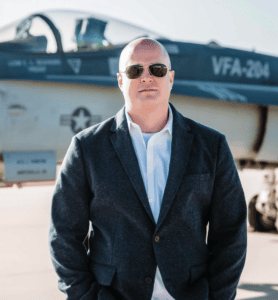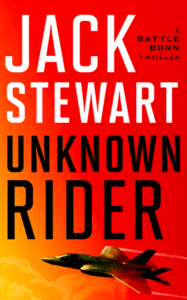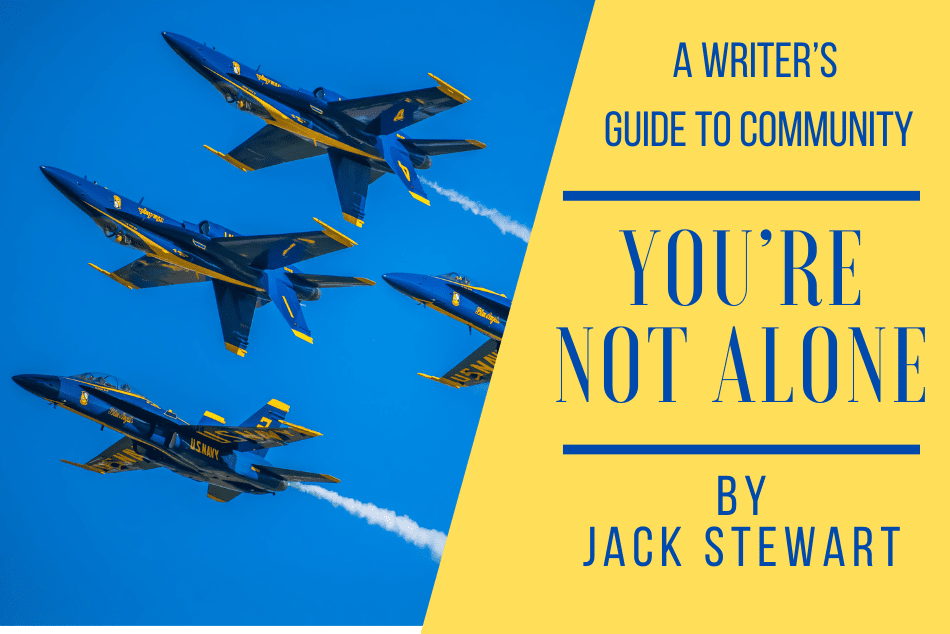It wasn’t that long ago when I showed up to book signings for my favorite authors when they came to town. I would sit in the back, never raise my hand to ask a question, and absorb everything they had to say, hoping that one day I would be lucky enough to be in their shoes. Now that I think about it… that was only a week ago.
The truth is, when I set out on my own journey to publication, I had no idea what to expect. Sound familiar? Yeah, I thought so. Something tells me that none of us are born knowing how to write a killer query letter or deliver a pitch that will bring an agent to his knees. Call me old-fashioned, but I believe those are skills we must learn through experience.
But here’s the secret: Does it have to be our own experience?
I still go to book signings, but now many of them are more than just my favorite authors. Now, they are role models, mentors, and friends. I wouldn’t be where I am today, and I won’t get to where I’m going tomorrow without them. So, here are three reasons why I believe you should cultivate relationships within the writing community (and one rule to follow):
1.) A rising tide lifts all boats.
Although John F. Kennedy is credited with the phrase to describe how an improved economy benefits all participants, I have more recently heard it used by several bestselling authors to describe the notable absence of competition within the writing community. It might seem strange at first, but the premise – as it applies to authors – is simple: Even the most prolific authors can’t keep up with an average reader’s appetite.
No matter where you write, I think it’s safe to say that writing is a lonely profession.
According to a recent Gallup poll, the average American reads 12.6 books per year – the lowest in the last three decades – while most authors only publish 1-2 books per year. Now, I was an English major in college, and math wasn’t my strong suit, but even I can see that this leaves a void that needs to be filled by others. But who will fill that void?
How great would it be if your favorite authors had a list of recommendations for their readers? But, how AMAZINGwould it be if you were one of them? Be a part of the tide.
2.) You don’t have to be alone.
No matter where you write, I think it’s safe to say that writing is a lonely profession. The reason why the phrase “kill your darlings” refers to ridding your story of an unnecessary character or plot line is because we often spend more time with our characters than we do with real people in the real world. They become our darlings.
Only another writer will understand that. I mean, can you imagine trying to explain to an outsider why a particular character doesn’t advance the story in the way you thought? Or, how a twist doesn’t seem to have the punch you expected? Even sympathetic family members will only politely nod their heads and offer a reassuring “uh huh” while secretly rolling their eyes.
Even the most prolific authors can’t keep up with an average reader’s appetite.
But it doesn’t have to be that way. What if you could just pick up the phone and call another author and run an idea by them? What if you needed to openly share your stress of a looming deadline? Or maybe a bad review?
I have done each of those things more than once. Having a close group of friends in this business will help preserve your sanity in the long run.
(And, let’s face it, most authors are short on that already.)
3.) Making easy hard?
When I completed my first novel, I sent out a handful of query letters with optimism that I would receive dozens of full manuscript requests from all the top agents in the business. Things didn’t pan out the way I had hoped, and the response was a resounding…silence.
Where did I go wrong? Why were the biggest publishers not knocking down my door to sign me to a seven-figure multi-book deal? Why was Hollywood not hounding me for film rights? Some might say I was overly optimistic in my enthusiasm, but I would summarize it by saying I was merely ignorant. I was making easy hard.
I didn’t know what I didn’t know. I didn’t know how to craft a compelling query letter. I didn’t know how to deliver a pitch that captivated a potential agent.
Five novels later, I leveraged the relationships I had formed with other established authors and refined my approach to seeking representation. I attended conferences. I joined critique groups. Most importantly, I asked for help. I took their advice and learned from their collective experience to break into the business. And I will continue to heed their advice as I progress in my career.
Their friendships make hard easy.
Rule Numero Uno: Ask not what your country can do for you…
Since I began with a quote from John F. Kennedy, it only makes sense to finish with one as well. And, for me, this is one of the most important things to remember when developing relationships with other authors (or lesser humans, for that matter). Do not build a relationship with expectations of what the other person can do for you.
Call it karma. Call it altruism. Call it whatever you want. But I believe when we put our energies into helping others, we often reap the rewards. You might wonder what you can possibly do to help other authors, but some of the simplest things require relatively little effort – buy their books, leave reviews, follow them online, sign up for their newsletters, share their news, and attend their events. Done genuinely, there is a good chance they will return the favor. And if not? You can at least feel good that you had a positive impact on someone’s life.
Done in the hopes of quid pro quo? Well, the scent of desperation is strong, and there is a good chance you will find yourself out in the cold. If you’ve ever been to a writing conference, there is a good chance you’ve seen who I’m talking about (if not, there’s a good chance it’s you.)
So, don’t ask what they can do for you. Ask what you can do for them.
I have given an author a back seat ride in an FA-18 Hornet. I have given another time in the simulator. I have set up tours on military bases and used my personal connections to give other authors access to people and places they might not otherwise have had. I have routinely offered my aviation expertise to several authors (and giggled when I saw my contribution to the book or name in the acknowledgements). And, even though I didn’t write their books, I felt a sense of pride in helping them to become the best versions possible. At the end of the day, isn’t that what we all want as writers?
I still show up to book signings, sit in the back, and don’t ask questions. But, one day soon, I believe they will show up to mine. And that makes it all worth it!
If this post resonates with you, then join the discussion on Facebook!
 Jack Stewart is a retired Navy fighter pilot, commercial airline pilot, and author. His debut novel, Unknown Rider, publishes on November 21, 2023, from Severn River Publishing and has been endorsed by New York Times bestselling authors
Jack Stewart is a retired Navy fighter pilot, commercial airline pilot, and author. His debut novel, Unknown Rider, publishes on November 21, 2023, from Severn River Publishing and has been endorsed by New York Times bestselling authors  Mark Greaney, Jack Carr, Brad Taylor, and Don Bentley. He can be reached via email at [email protected].
Mark Greaney, Jack Carr, Brad Taylor, and Don Bentley. He can be reached via email at [email protected].





